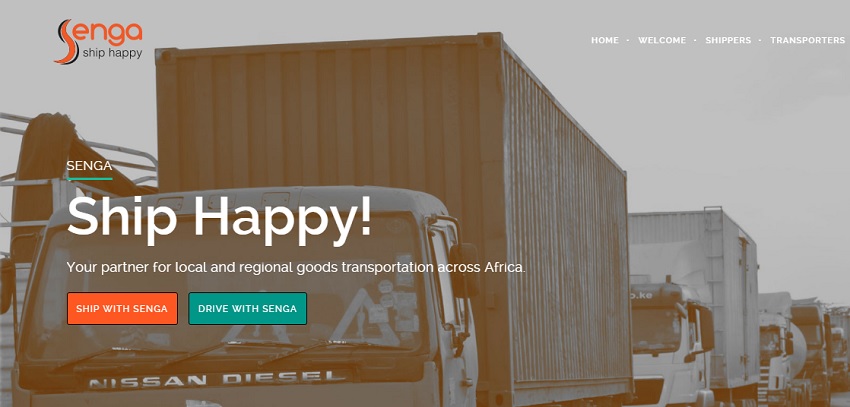Fed up of the limited infrastructure available in Africa for transporting goods, the continent’s tech-savvy entrepreneurs are stepping up to address the need: tech-forward logistics startups are springing up Africa-wide. Here Disrupt Africa introduces five of the most exciting African e-shipping startups to watch (and use).
Swiftly
Ghanaian startup Swiftly wants to disrupt the shipping industry by lowering the cost of sending cargo, while also achieving a positive environmental impact.
The app brings the on-demand economy to the shipping industry, by matching people with goods to ship with spare space in containers, whether being sent by sea, air or land.
“It is just wasteful when someone has to ship a half full container by sea, or a half full package by air, or hire a delivery truck or van without fully utilising the space,” chief executive officer (CEO) Edem Dotse told Disrupt Africa.
“If there can be ridesharing or apartment sharing, there can also be the sharing of shipment space.”
The startup launched earlier this year listing a number of Ghanaian providers; but the platform has a worldwide catchment area, so Swiftly is thinking big. Watch this space.
Bifasor
Burkina Faso-based shipping online marketplace Bifasor launched in beta last May, perfecting its platform across Burkina Faso, Ghana and the Ivory Coast.
The Bifasor platform allows registered logistics businesses to find partners and customers, while also managing their businesses through a single dashboard; as well as providing a marketplace where dealers of spare parts and logistical equipment and services can sell.
Bifasor aims to give a much-needed boost to the myriad of small and medium-sized logistics providers in Africa, with the startup saying 90 per cent of these providers do not have an online presence or marketing. By listing on the Bifasor platform, these businesses can increase their visibility, and reach new partners and clients.
The startup was incubated at Paris Pionnieres, and supported by the French Tech Ticket, a programme of the French Ministry of Economy and Finance.
Senga
Kenya’s Senga operates an on-demand platform connecting shippers and road-based transporters of goods.
Shippers and transporters register on Senga, which matches items needing transporting with drivers covering those routes.
The bootstrapped startup launched in beta in October, specialising in moving truckloads across Kenya’s cities, with the future aim of expanding to international transport services.
With the aim of improving efficiency across the logistics space, Senga’s approach is to improve visibility and transparency of the supply and demand elements of transportation, to achieve more relevant, affordable, and effective logistics.
Fastvan
Also tapping into the on-demand economy, South Africa’s Fastvan launched in 2014 on the back of seed funding from a UK-based angel investor.
Fastvan allows users to schedule freight or courier services in real time from their mobile phone. The company aims to revolutionise the shipping industry via mobile, to make the process easy, efficient, automated and transparent.
On requesting a shipment, users receive instant quotes from each listed courier – with courier ratings also visible; which users can accept or reject via the platform. Users also receive an automated waybill and invoice, and can track their shipment in real-time.
Last month (December 2016), the startup rolled out a new version of its app, allowing users to send hundreds of parcels in minutes to local or global destinations.
The startup will not be slowing down any time soon – there are plans in the pipeline for US and European launches in 2017, as well as more fundraising to be done.
Aquantuo
Ghana’s Aquantuo provides a more niche service, operating a peer-to-peer (P2P) platform that helps people get an item from one country to another using spare space in the bag of an individual travelling.
Using Aquantuo, someone wanting to send an item from one country can post the item on the platform, including the item’s present location and the intended destination. Once payment is made, the post becomes available to all registered transporters, who are Aquantuo users – including businesses – that have opted to carry items as they travel from one country to another.
The startup’s main driver is the wish to enable people to order items from anywhere in the world, and be able to have their products delivered to their home country.
Aquantuo initially launched to facilitate shipping between Ghana and the US, but says the platform is scalable to other countries easily. No doubt we’ll be seeing proof soon.


